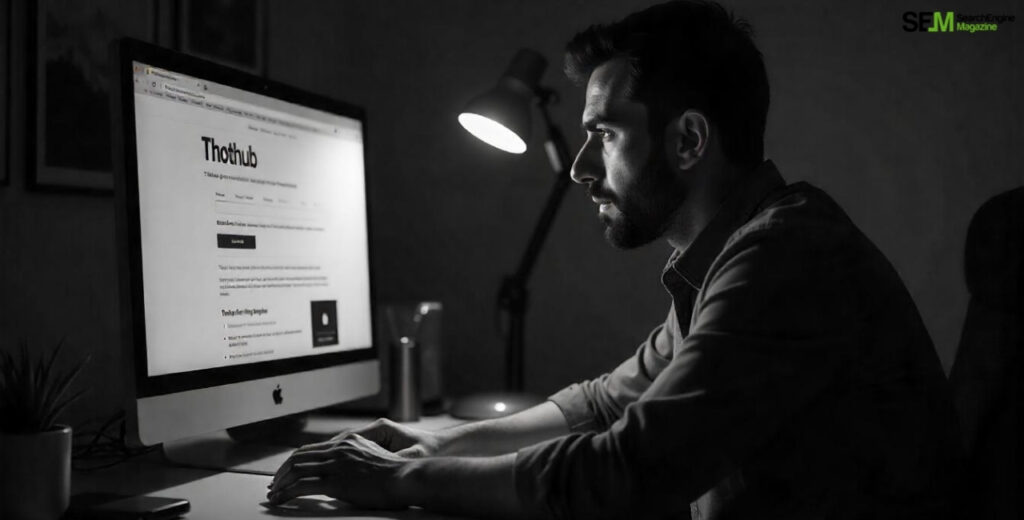Thothub was once a well-known platform on the internet, particularly popular in online adult communities. Launched as a forum-style website, it allowed users to share and access explicit content, often featuring social media personalities, amateur models, and content creators—frequently without their consent. While some users saw it as a haven for adult content, the platform’s questionable ethics and practices ultimately led to its demise. In this article, we explore what Thothub was, why it gained so much traction, what led to its downfall, and the important lessons its story teaches about internet ethics, privacy, and digital accountability.
What Was Thothub?
Thothub started as a user-driven platform that primarily featured leaked and pirated adult content. It was especially notorious for hosting content from OnlyFans creators without their permission. The site operated like a forum, where users could post, comment, and request content.
It was part of a growing number of online hubs that thrived on distributing “premium” adult material for free. Because of this, it attracted a large audience—ranging from casual browsers to more dedicated users who regularly uploaded content and participated in the community.
At its peak, Thothub reportedly had millions of users and was considered one of the top sources for leaked adult content on the internet.
Why Did It Become So Popular?
Several factors contributed to Thothub’s meteoric rise in popularity:
-
Accessibility of Content: Many users were drawn to Thothub because it offered premium adult content without the paywalls associated with platforms like OnlyFans or Patreon.
-
Anonymous Interaction: The forum-style format allowed users to remain anonymous while posting or requesting content. This anonymity helped create a thriving, albeit ethically questionable, community.
-
Searchable Categories and Topics: Users could easily browse by the name of content creators, making it simple to find what they were looking for.
-
Social Media Integration: Much of the content was taken from social media influencers, which made it feel more “exclusive” or “behind-the-scenes” to viewers—even though this content was usually stolen.
Ethical and Legal Issues
The success of Thothub was built on shaky ethical ground. The vast majority of the content hosted was obtained and uploaded without the consent of the original creators. This includes:
-
Revenge Porn: Some uploads were tied to revenge or harassment, making the content even more harmful.
-
Violation of Copyright and Privacy Laws: Thothub ignored copyright laws and terms of service of platforms like OnlyFans.
-
Exploitation: Creators, especially women, were often victims of exploitation when their private content was shared without their permission.
These actions raised serious ethical questions about consent, privacy, and the protection of digital identities.
The Takedown of Thothub
In 2020, after growing pressure from content creators and legal experts, Thothub was taken down. This came following an investigation that brought to light the criminal nature of the site’s operations.
Multiple creators began taking legal action. Some reported the site to law enforcement, while others rallied on social media, raising awareness of the issue. This public outcry, combined with investigations from tech watchdogs and legal entities, eventually led to the shutdown of Thothub.
The shutdown was a huge relief for many creators who had long struggled with the lack of control over their content. However, it also raised new questions about how to better protect individuals in the digital age.
Impact on Content Creators
Thothub’s existence—and its eventual shutdown—had a significant impact on content creators, especially those who rely on subscription-based platforms for their income. Key effects include:
-
Increased Awareness: Many creators began educating themselves on digital security, watermarking content, and legal rights.
-
Supportive Communities: Networks of creators started forming to help each other track and report stolen content.
-
Legal Precedents: The legal attention brought to Thothub laid the groundwork for stronger actions against similar sites.
Some creators also became vocal advocates for online privacy reform and content protection, using their platforms to warn others about the risks of unauthorized sharing.
Digital Privacy in the Spotlight
Thothub’s case sparked a broader conversation about digital privacy and accountability. While platforms like Facebook, Twitter, and OnlyFans have policies against non-consensual content sharing, enforcement is often lacking.
The Thothub scandal highlighted the need for:
-
Stronger Digital Protections: Lawmakers and tech platforms must prioritize building safer environments for content creators.
-
Better Reporting Mechanisms: Victims should have clear and immediate paths to report abuse or copyright violations.
-
Increased Transparency: Hosting services and domain registrars must be held accountable when they provide resources to unethical platforms.
Are There Replacements or Clones?
Unfortunately, after Thothub was taken down, several clone sites tried to take its place. While none have matched the original’s size, they still pose a threat. Many operate in more obscure corners of the internet or rely on encryption and anonymized platforms to stay hidden.
However, creators and internet users are now more vigilant. Community watchdogs, anti-piracy organizations, and legal teams are quicker to act when such sites appear.
Lessons Learned
The story of Thothub is not just about a website—it’s about how our digital culture is evolving. Here are a few critical takeaways:
-
Consent is Non-Negotiable: Sharing intimate or premium content without permission is unethical and often illegal.
-
Digital Accountability Matters: Platforms, hosting providers, and users all share a responsibility in maintaining safe online spaces.
-
Support for Creators: Creators must be empowered with tools, laws, and communities to protect their work and identity.
-
Privacy Education: All users, not just creators, benefit from understanding how their data and content can be misused online.
Conclusion
Thothub may be gone, but the issues it raised are very much alive. In a world where sharing happens with a click and privacy is increasingly fragile, it’s vital to champion ethical behavior, consent, and digital rights. As content creation continues to boom, so must the safeguards that protect the people behind the screens. The fall of Thothub serves as a cautionary tale—reminding us that popularity does not excuse exploitation, and that ethical boundaries must be respected in every digital space.
